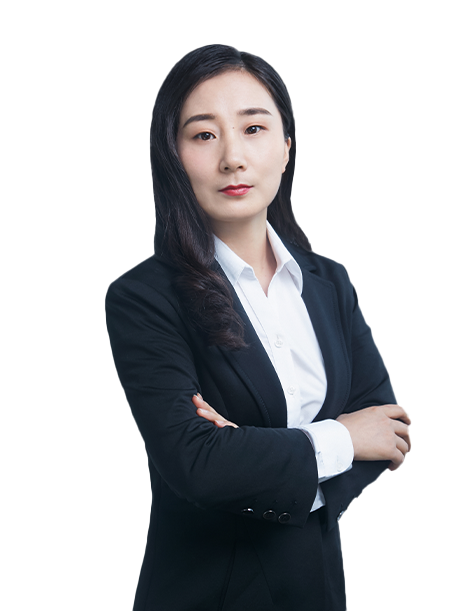Should shareholders of a spousal company bear joint and several liability for compensation with the company? ——Evaluation (2023) Zhe Min Zhong 1089 Case
Release Date:2024-03-11 Number of views:110
1、 Case Summary
Case number: (2023) Zhejiang Minzhong 1089
Trial court: Zhejiang Provincial High People's Court
Related legal provisions: Article 46, Article 63 of the Company Law of the People's Republic of China (2018 Amendment)
Keywords: One person company, mixed ownership, infringement of trademark rights, and unfair competition
2、 Case Introduction
Zhejiang Jingri Technology Co., Ltd. (hereinafter referred to as "Zhejiang Jingri") is an enterprise that has been deeply rooted in the street lamp industry for decades. Since its establishment in 1996, it has continued to cultivate in the street lamp industry and gradually become a leading enterprise in the street lamp industry. It owns multiple registered trademarks such as "Jingri Lighting". In 2021, Zhejiang Jingri intended to establish a branch in Zhongshan area, but found that the name could not be approved. Further investigation revealed that there was a local enterprise called "Zhongshan Jingri Lighting Co., Ltd." (hereinafter referred to as "Zhongshan Jingri") in Zhongshan, which was renamed from Zhongshan Aolong Carton Co., Ltd. in 2011. On the official website of Zhongshan Jingri, the brand is prominently labeled as "Jingri Lighting", and "Jingri Lighting" is prominently used on the website.
Zhejiang Jingri then filed a lawsuit with the court on the grounds of trademark infringement and unfair competition, demanding that Zhongshan Jingri stop infringing and compensate for losses. In the first instance, we found that the financial data submitted by Zhongshan Jingri contained the confusion of shareholder Li and company property. Therefore, we added Li as a co defendant in this case and demanded that he bear joint and several liability for the company's infringement.
After trial, the first instance court supported our request to cease infringement and compensate for losses, but deemed that the existing evidence was insufficient to prove the existence of property confusion between shareholder Li and the company, and did not support our request for Li to assume joint and several liability for compensation. In the second trial, Zhongshan Jingri claimed in court that its shareholders Li and Xue were husband and wife. Therefore, we once again demanded that Li bear joint and several liability for compensation on the grounds that the company of the husband and wife shareholders should be regarded as a one person company in essence. In the end, the court made a second instance judgment, sentencing Li to bear joint and several liability for the company's infringement.
3、 Legal analysis
The key points of this case mainly focus on: how to determine the joint and several liability of shareholders for compensation?
As an independent legal entity of a company, shareholders of a limited liability company are liable to the company to the extent of their subscribed capital, while shareholders of a joint-stock company are liable to the company to the extent of their subscribed shares. This is a fundamental principle of Company Law. But in some cases, shareholders may abuse the independent status of the company's legal person and the limited liability of shareholders, evade debts, and seriously damage the interests of the company's creditors. In this case, it is necessary to "pierce the corporate veil" in accordance with Article 20 (3) of the Company Law (2018), and determine that shareholders who abuse the independent status of the company's legal person and the limited liability of shareholders shall bear joint and several liability for the company's debts.
In this case, Zhongshan Jingri submitted several contracts to the court to prove that it has formed a stable consumer group after years of long-term operation, use, and promotion. After careful review, we found that Zhongshan Jingri used the personal account of shareholder Li as the receiving account for company transactions in multiple contracts, and Zhongshan Jingri did not provide any evidence of Li transferring payments to the company account after receiving payments, resulting in serious mixing of company and shareholder assets. We hereby file a lawsuit with the court requesting that shareholder Li bear joint and several liability for the company's infringement, but the first instance court considers that the existing evidence is insufficient to prove that shareholder Li has serious property confusion with the company and does not support our lawsuit.
In the second instance, we submitted relevant evidence to the court that the only two shareholders of Zhongshan Jingri, Li and Xue, are husband and wife, and demanded that shareholder Li bear joint and several liability for compensation on the grounds that the spousal shareholder company should be regarded as a one person company in essence.
There has always been significant controversy in judicial practice regarding whether a spousal shareholder company can be considered a one person company in essence. In case No. 1184 of the Supreme People's Court of China (2018), the court held that the company was established by the joint investment of the husband and wife, and the shareholders of the company were not one and had fully fulfilled their investment obligations. There was also no evidence to prove that the assets of the husband or wife were mixed with the company's assets. The court claimed that the joint and several liability of the shareholders should be pursued in accordance with the relevant legal provisions of a one person company, and the legal basis was insufficient. In case No. 372 of the Supreme People's Court of China (2019), the Supreme Court held that although the company was established with the investment of two spouses, they were married and the company was established during the period of their marriage, and there was no property division certificate in the company's industrial and commercial registration and filing materials. Except for the agreed property system stipulated in the Marriage Law, the property obtained by spouses during the marriage period shall be jointly owned by the spouses. The registered capital of the company comes from the joint property of husband and wife, and all equity of the company belongs to the property acquired by the two parties after marriage, jointly owned. The entire equity of the company is essentially derived from the same property right, and is jointly enjoyed and controlled by one owner. The equity subject has consistency of interests and substantive unity. Therefore, it is determined that the company in this case is a one person limited liability company in the substantive sense. In the Supreme Court (2020) Supreme People's Court case No. 6688, the court held that a one person limited liability company refers to a limited liability company with only one natural person shareholder or one legal person shareholder. As a limited liability company, even if it is established by two shareholders as joint property of husband and wife and classified as a "one person limited liability company", there is still a lack of legal basis.
It can be seen that the Supreme Court has made judgments with completely opposite views on whether a company established by a married shareholder belongs to a one person company. Specifically in this case, we believe that in addition to Zhongshan Jingri's spousal shareholder company, shareholder Li also has a situation where his property is seriously mixed with the company's property. Therefore, it is not inappropriate to determine that shareholder Li bears joint and several liability for Zhongshan Jingri's infringement behavior. The court believes that in this case, the shareholders of Zhongshan Jingri are Li and Xue. Li admitted in the second instance trial that Xue is his spouse, and it can be determined that the registered capital of Zhongshan Jingri Company comes from the joint property of the couple, and all of its equity is essentially derived from the same property rights, which are jointly enjoyed and controlled by the couple. Considering that Li cannot prove that both parties agreed to own the property acquired after marriage, Zhongshan Jingri Company is essentially a one person limited liability company. In the absence of evidence proving that the company's assets are independent of the shareholders' own assets, Li, as a shareholder of a substantial one person limited liability company, should bear joint and several liability for the company's debts. The first instance court found that there was no property confusion between Li and Zhongshan Jingri, and they did not need to bear joint and several liability, which should be corrected. In the end, the second instance court supported our claim and ruled that shareholder Li should bear joint and several liability for the infringement of Zhongshan Jingri.
4、 Case insights
The issue of compensation and enforcement in intellectual property infringement cases has always been a difficult problem. Therefore, in order to ensure effective enforcement of the case, taking the company's shareholders as joint defendants and assuming joint and several liability with the company is an effective way to ensure that the judgment can be enforced. For proxy lawyers, it is necessary to conduct background checks on the defendant company and shareholders during the preparation and trial stages of the case, carefully sort out, review, and utilize the evidence submitted by the other party.
On the other hand, in the process of operation, the company should regulate its operations, avoid situations where shareholder property and company property are mixed and damage the interests of the company's creditors, and maintain the independent legal personality of the company.












 Nanjing
Nanjing Suzhou
Suzhou Changzhou
Changzhou Hefei
Hefei Hangzhou
Hangzhou